The first time I met my great aunt Bobbie, I was seven or eight. My dad had recently remarried, and Bobbie was an extended part of the new family. She was married to Bill, my new grandmother’s brother. When they met, Bill was a businessman and investor. Bobbie was a flight attendant for PanAm who had traveled all over the world.
They came down from Chicago to visit their new relatives on our small Indiana farm. At the time, I was a freckled, squirrelly, often muddy country kid who spent weekends playing in the woods, setting off firecrackers, and crashing my bike on dusty roads. Bobbie was a stylish, sophisticated lady from the city. She brought me a Gund stuffed bear that probably cost more than anything I owned at the time.
I don’t quite know what she saw in that kid, but Bobbie quickly took a liking to him, and the visit would eventually evolve into one of the more lasting and rewarding relationships of my life.
I’ve come to believe that, as kids, we all need someone who believes in us who doesn’t have to believe in us. So not a parent or grandparent. Someone outside the immediate family who takes a shining to you. Who roots for you. It’s the person who, in the back of your mind, you know would take you in if you had to run away from home. For me, that person was Bobbie.
Bobbie was quirky, compulsive, and often misunderstood. I found her delightful, endearing, and endlessly interesting. She often went off on weird tangents that introduced me to entirely new worlds, like her theories on pack behavior in dog parks, or her lifelong contempt for Elvis Presley for thinking he could improve on Willie Mae Thornton’s rendition of “Hound Dog.” Dining out with her was a whole new restaurant experience. If we went to one of her regular spots in the Chicago area, she could be demanding and highly particular, to the point where it could get awkward. But then I’d notice that the staff went out of their way to keep her happy. Then she’d tip 50 percent. And it all made sense.
Bobbie was an obsessive collector. You might say she collected collecting things. If she hadn’t been a lady of means, she’d probably be called a hoarder. The first time I visited her, I was struck by her collection of carousel horses. Not miniatures or toys, mind you. She collected actual, life-size carousel horses. They were just there, around the house, showing off next to a couch or bookcase.
Over the years, Bobbie also collected wildlife paintings and drawings, landscapes in oil, Native American art, and nativity scenes — including, as I remember it, one that was once on display at the Vatican.
She also collected stuffed animals. So many stuffed animals. She once gave me a Beanie Baby as a gift, which I found a bit odd given that I was in college at the time. Later, someone who collected them saw it on a shelf in my house and told me it was worth around a thousand dollars.
Bobbie’s hobbies eventually became a retail shop in a quaint part of Barrington, Illinois, where she sold stuffed animals, games, and other collectables.
Perhaps the most Bobbie thing Bobbie ever did was the party she threw for Bill when he turned 50. She flew in friends and relatives from all over the country. She flew in Irish step dancers and bagpipers . . . from Ireland. She then arranged for the street in front of her store to be closed down so that the small parade of people she’d gathered could march by. That’s how Bill found out about the party. She’d managed to keep the whole thing secret from him. It’s now the stuff of family legend.
I remember calling Bobbie one night in the mid-2000s. When she picked up, there was only loud background noise. I couldn’t hear her at all, and eventually hung up. The next day she called to tell me where she was. At some point in the previous year, she had seen the singer Chris Daughtry on an episode of American Idol. She fell for him hard. She began collecting everything Daughtry she could find. She talked about him the way a teen girl talks about about a dreamy pop star. She was probably in her mid-50s at the time. The night I called, she’d been at one of his concerts. Premium seats, of course.
Until about college, Bobbie was an eccentric aunt I loved to visit, but only saw every couple years. It was in my last few years at Indiana University that we started talking more often. She visited my campus in Bloomington. On one occasion we went to the campus art museum. On another, we went to see the traveling edition of the revue Smoky Joe’s Cafe. (Bobbie was an “old soul who loves old soul,” as she put it.)
We grew closer through my twenties. That’s of course the age in which you’re trying to figure it all out — life, loss, love, how you fit in the world. I lived in D.C. for much of my twenties, so I would call Bobbie during the long drives between Indiana and the East Coast. (I’ve long thought unofficial state motto of Ohio ought to be, “Yep. You’re still here.”)
Bobbie gave me advice, picked me up when I needed it, took me down a notch when necessary, and talked me through some of the more difficult periods of my life. I miss those talks. To this day, my internal soundtrack to long stretches of bland interstate terrain is Bobbie’s warm upper Midwestern accent, studded with those endearing youbetchas and dontchaknows.
Bobbie and I eventually grew close enough that when I was dating someone seriously, I’d bring them up to Chicago to meet her. (It was also a convenient way to visit Chicago and get a free meal.) She’d typically give me frank, unsolicited feedback about those relationships. Looking back, it’s uncanny how accurate she was. She eventually told me that it was never really about the women, who of course she barely knew. She was watching my interactions with them. How they looked at me. How I looked at them. How we communicated. That she could see.
I’m happy that before she got sick, Bobbie got to meet and bond with my wife Liliana. She approved, enthusiastically.
Bobbie also collected dogs. First it was Portuguese Water Dogs. She then moved onto Havanese. The latter became a bit of a trap for her. As both Bobbie and the dogs grew older, she was more and more reluctant to leave them. She stopped traveling as much, and grew increasingly homebound, especially after moving to Ft. Myers, Florida. It was harder for me to get there than Chicago. That means I saw her less and less, though we still talked frequently.
Back in high school and much of college, I was politically very conservative. During one dinner out in Bloomington, I mentioned some event organized by the College Republicans. Bobbie jested about needing to rescuing me from the “Hitler Youth.”
Our respective politics would later converge, then eventually move in opposite directions. I moved towards libertarianism and away Republican Party, particularly during the Bush years. Bobbie got more religious as she got older. She didn’t join a specific church, but became a sort of generic but enthusiastic Christian. But with that came increasingly conservative politics. This became clear during a conversation early in the Obama era when she told me she had been “Hannitized,” a verb that I didn’t know existed.
We took an agree-to-disagree approach to politics. More importantly, at least to me, was that we did see eye-to-eye on the issues I cover. Bobbie was empathetic, but also had a surprisingly spirited anti-authority streak. So she was thrilled that I had carved out a niche writing and reporting on policing and the criminal justice system.
The first time Liliana met Bobbie, we were in Chicago to see Book of Mormon. I was reluctant to tell Bobbie about the show because I didn’t want to offend her. But I don’t know that she would have disliked it. The bawdy humor wouldn’t have bothered her at all, and the show’s ultimate message is of course that if religion gives people peace and comfort and it isn’t harming anyone, it’s probably a net good.
That’s sort of how I saw Bobbie’s turn to religion. It gave her comfort, and that’s all that really mattered. I’m agnostic, but when she started regularly telling me she would pray for me, I took it for the loving, supportive gesture that it was. I took her attempts to “save” me the same way.
She eventually gave up on the saving part, but she also promised that she’d pull some strings to get me into heaven. I’m not sure that’s quite how it works, but if anyone could cajole a favor up there, it’s Bobbie. And if there is a heaven, I have no doubt she’s up there wheeling and dealing on my behalf as I write this.
Bobbie was diagnosed with Alzheimer’s in 2015. Liliana and I scheduled a visit to Ft. Myers. It would be the last time I saw her.
By that point she was still coherent and conversant, but the creeping dementia was pretty evident. She often repeated herself, and would forget conversations we’d had minutes earlier. But she was also still Bobbie — still generous, still eager to share her latest obsession (we watched “Jersey Boys” which she’d recently seen at least a dozen times), and still full of boundless empathy.
One morning during that trip, the four of us had breakfast at a local Perkins. Bill started talking about Bobbie’s shop. When he was younger, Bill had the foresight to invest in a number of fields just as they took off. I’d always assumed Bobbie’s store was just another of her compulsive whims — a venture that brought her some joy, but probably wasn’t profitable. But Bill told us that there had been a time in which a couple of his investments hadn’t panned out. Bobbie’s store was not only profitable, it sustained them over that period.
So she was business-savvy, too. She contained multitudes.
During the same breakfast, Bill mentioned the high school he’d attended in New York City. Another retiree at the table behind us overheard and said he’d gone to the same school. Then someone across the aisle chimed in that they were from the same neighborhood. Soon my wife and I watched in amused awe as a significant percentage of the elderly patrons in a Ft. Myers, Florida Perkins loudly reminisced about growing up in New York.
Bobbie, who grew up in Wisconsin, flashed me a smile. “This is what it’s like to be old,” she said.
As the Alzheimer’s progressed, Bill eventually moved Bobbie into full-time care. For the first couple years, I regularly sent her flowers. Looking back, I think that was as much for me as it was for her. It was an excuse to keep her in my life, if only by way of a gesture. I later read that that such gestures can be stressful for someone with advanced Alzheimer’s, because they’re unable to recall the person who sent the gift. So I stopped the flowers. That also meant confronting the void left her in place.
That was about seven years ago. Bobbie passed away in late October. I knew that when I visited her in Florida in 2015 it would likely be the last time I’d see her. I thought I had sufficiently pre-grieved. I hadn’t. Her death hit pretty hard.
Bobbie’s passing also coincided with the end of the 2024 presidential campaign. At risk of getting overly political, this made me especially resentful of the deeply stupid debate over “childless cat ladies.” Bobbie was more of a dog lady than a cat lady, though she was an all-around lover of animals. But she never had kids. She was a walking, talking, loving repudiation of the ignorant claim that people like her have no stake in the well-being of future generations.
I wasn’t the only young person Bobbie chose to make part of her life. She’d also bonded with many of the college-aged girls she hired to work at her store over the years, which turned into the same sort of lifelong friendships.
Nothing compelled Bobbie to take an interest those girls — nor in the freckle-faced kid she met on an Indiana farm back in the early 1980s. Nothing forced to her to become such an important part of the person I am today. She chose to become part of my life, and she chose to remain one. She chose all of it. And I’m endlessly grateful that she did.
Like Bill and Bobbie, my wife and I don’t have children. I don’t know that I can repay the debt I owe Bobbie. But one thing I can do, and plan to do, is try to be present for the nieces, nephews and other kids in my life the way she was present for me —to be the Bobbie that Bobbie was to me.

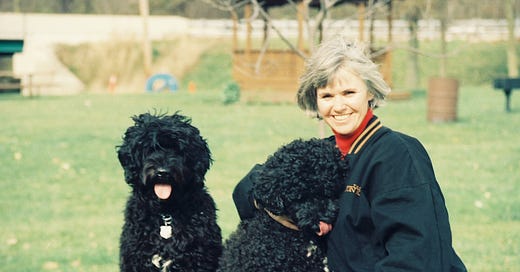



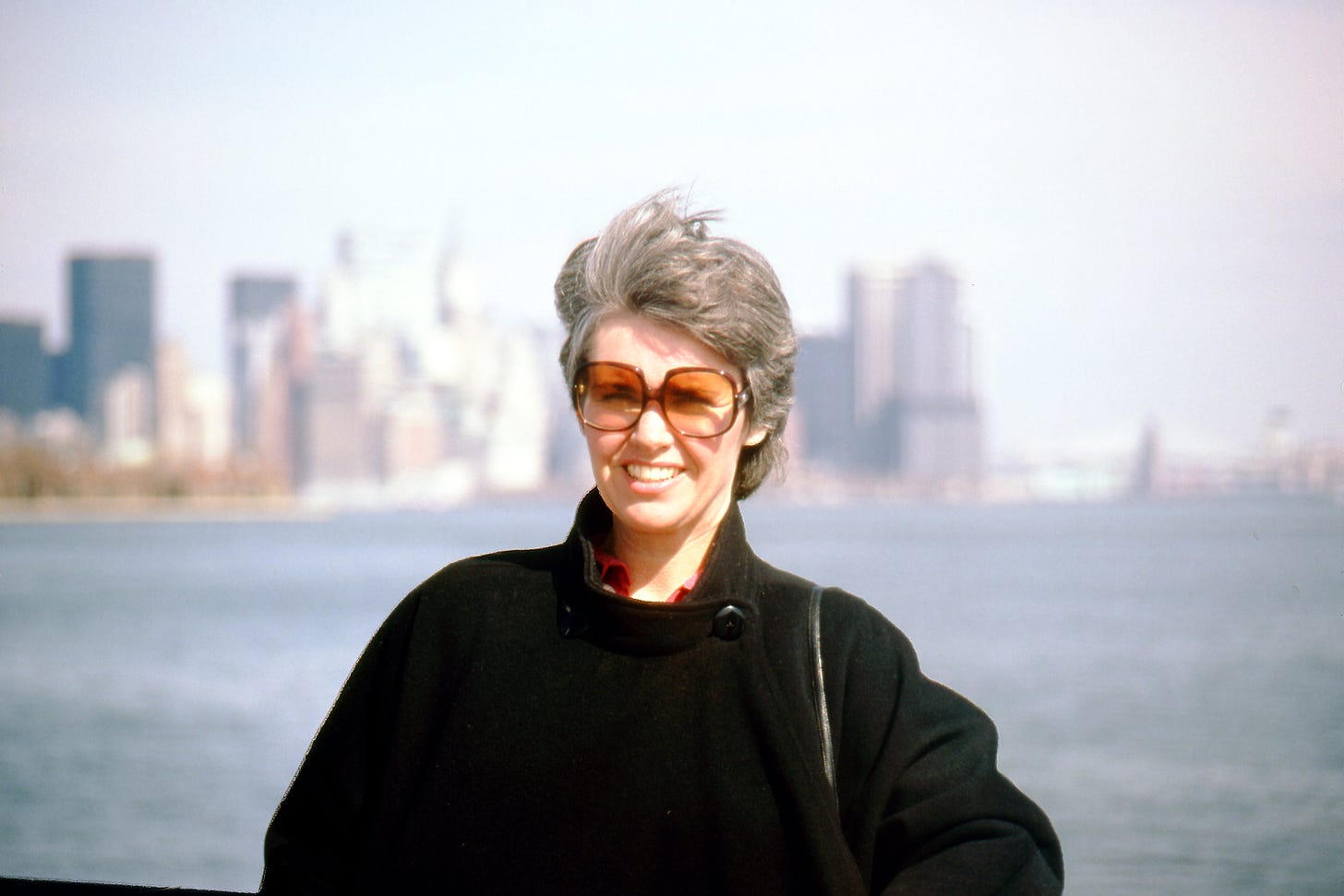
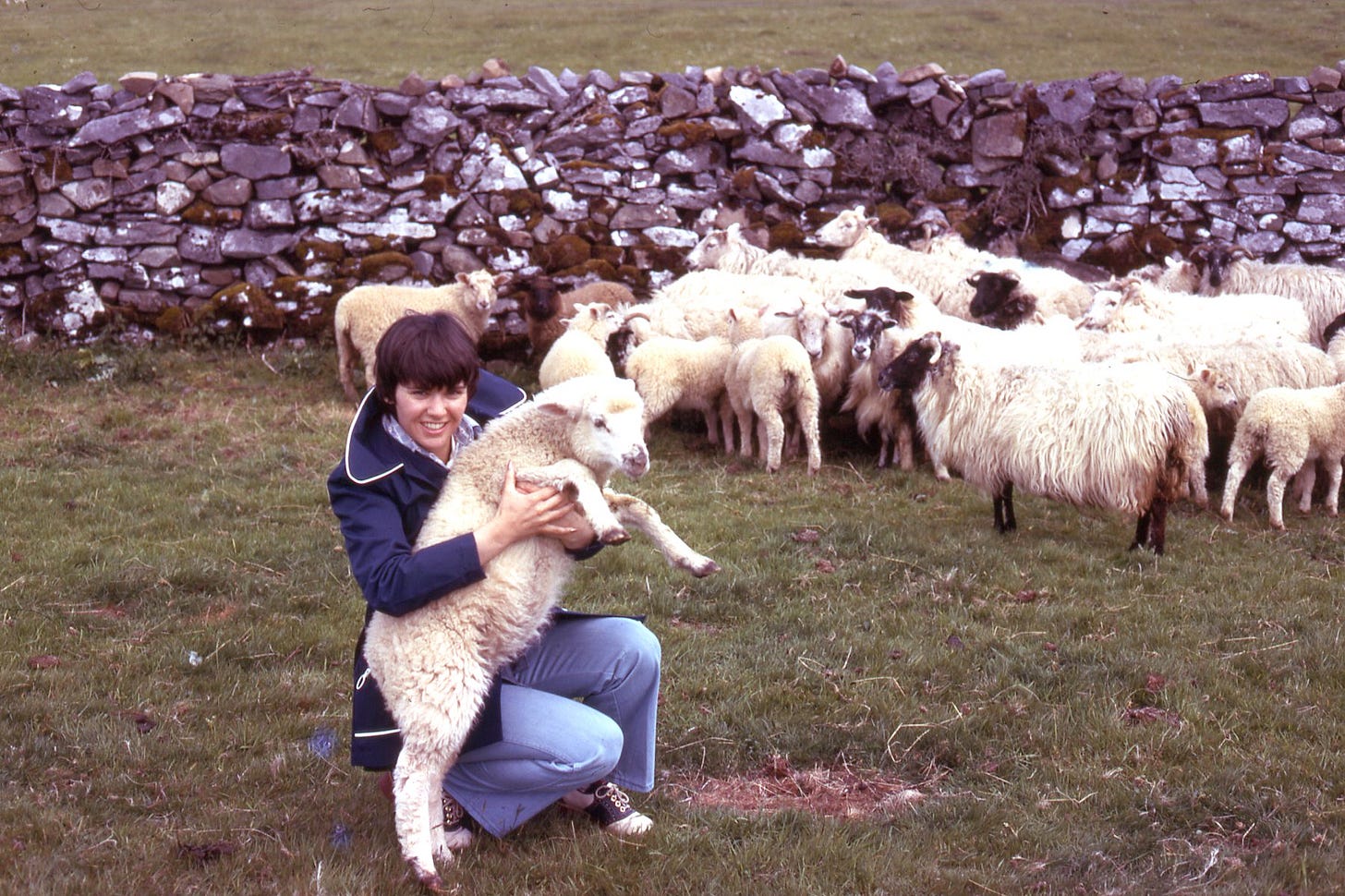
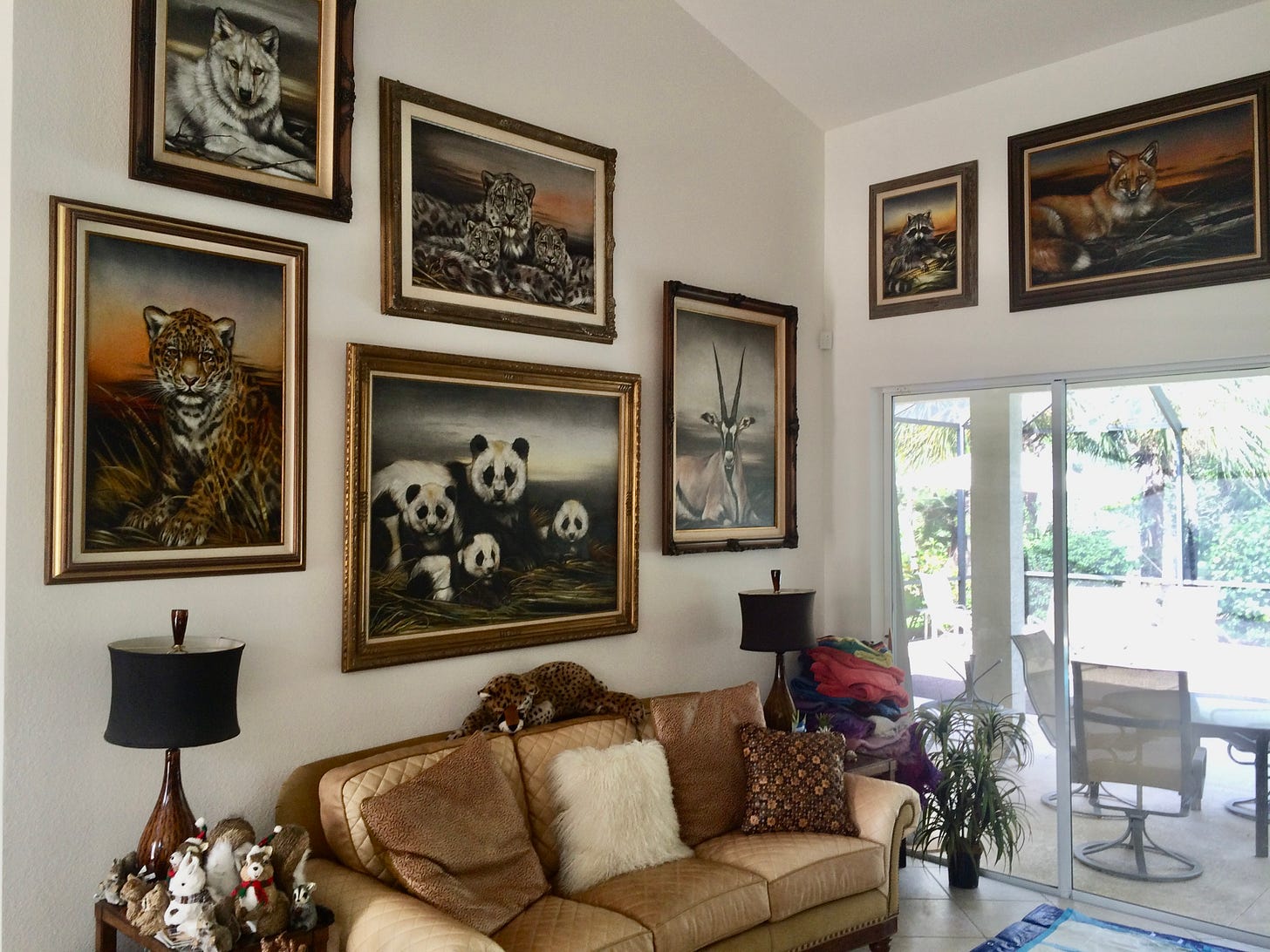
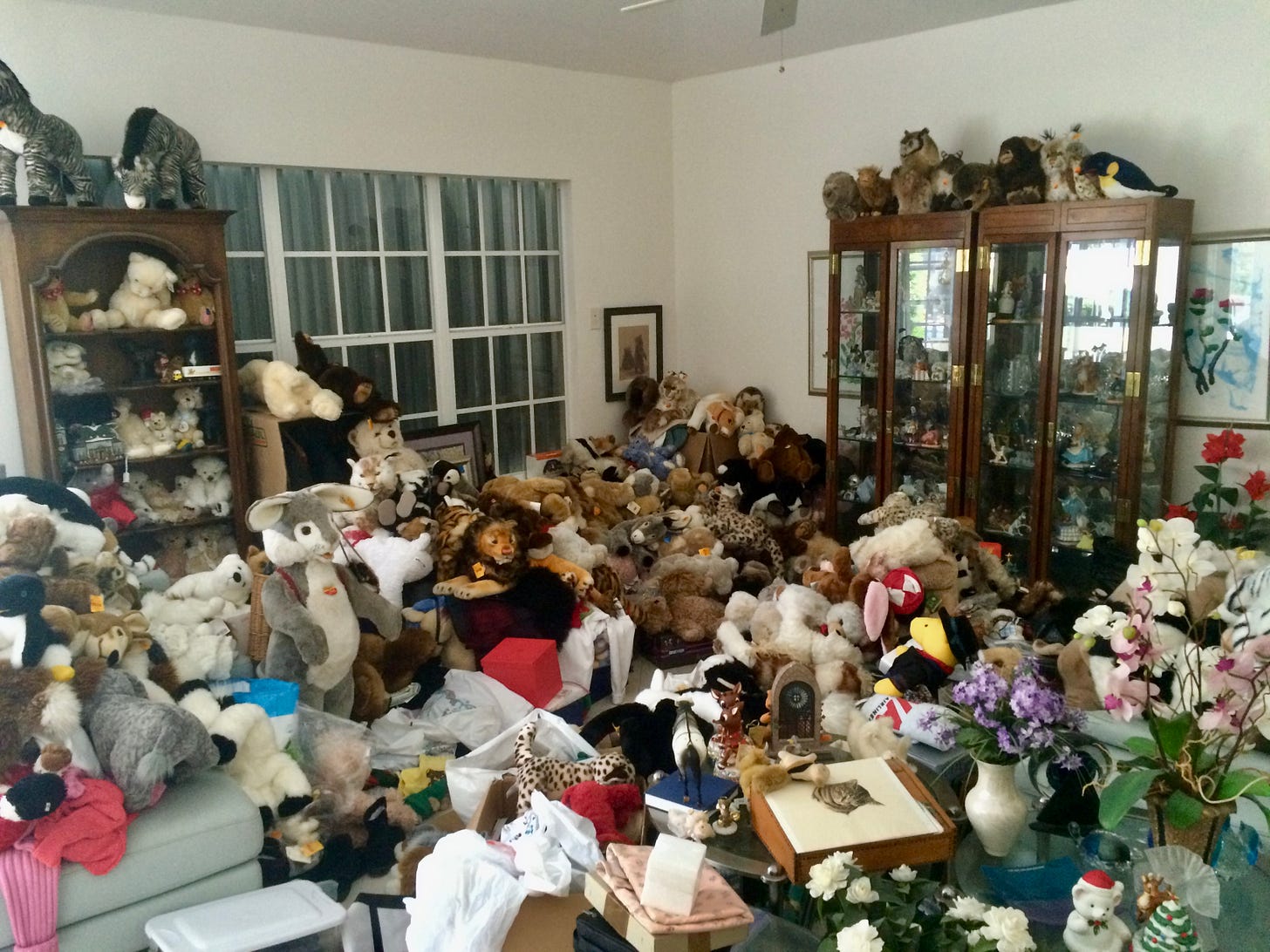
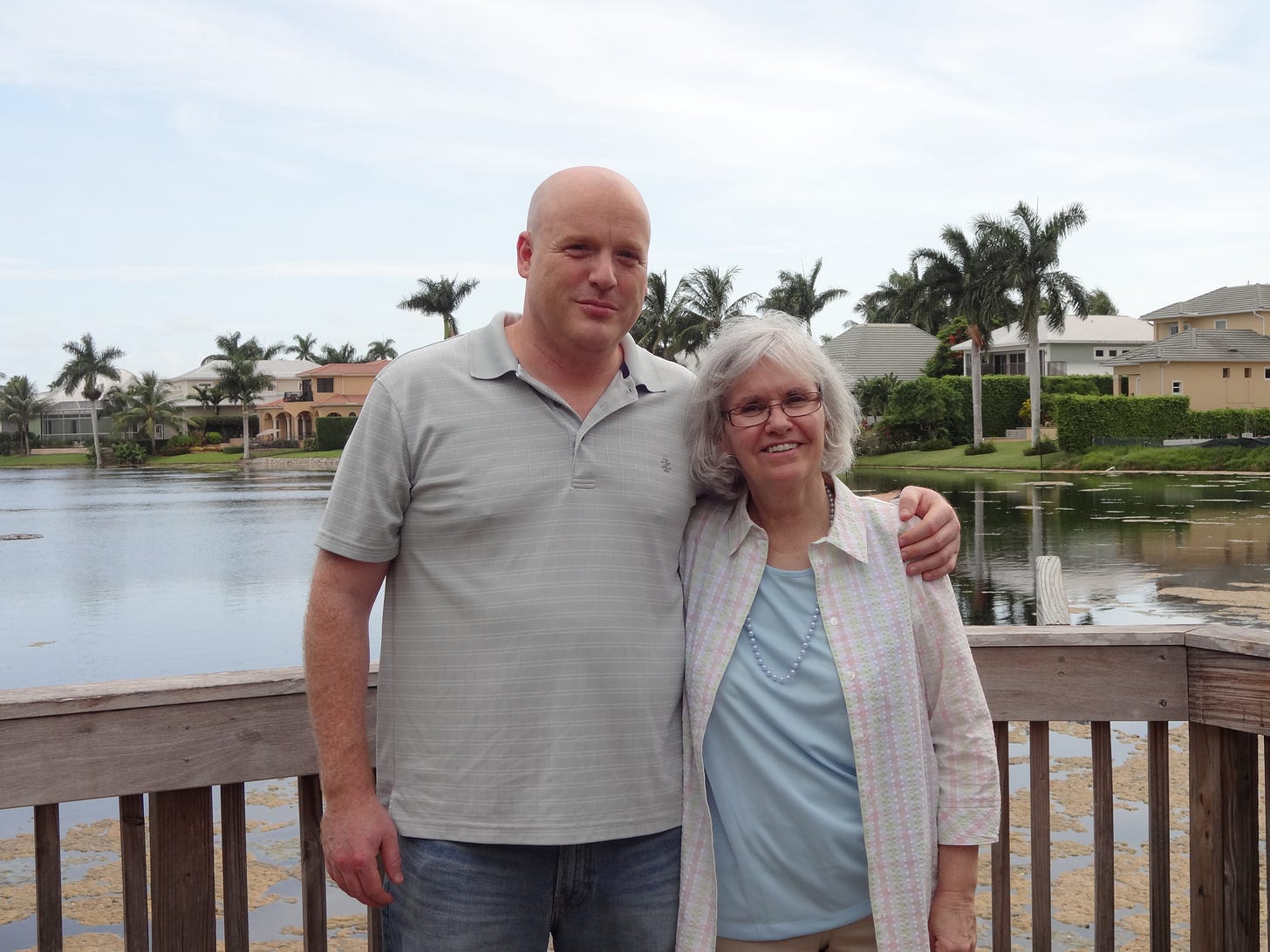
Radley,
I am in tears. Through your writing, so infused with love, admiration and respect, your aunt feels astonishingly real and I grieve for your loss. She was absolutely wonderful. You are correct, every child should have an Aunt Bobbie. Every single one.
Thank you for sharing her with us.
Kasumii
What a wonderful tribute to someone who meant so much to you. All we can do in this life is hope we leave it better for the people we leave behind.
So sorry for your loss.